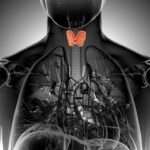You are a very important person! The daily grind takes a toll on you. The years of physical and mental stress causes untold damage. Jay Harold wants to help.
Jay Harold has put together a list of relevant and helpful websites that you may find useful when trying to improve your health and wealth. Please let us know if you have any suggested additions to this page. We are continually trying to improve the information we offer our community.
Medicare
Social Security
Benefits.Gov
A good starting point for all government benefits.
IRS.Gov
Medicaid
Mental Health
Healthfinder
A good starting point for all government healthcare benefits.
Cancer.Gov
Heart Disease/What You can Do
MedlinePlus
MedlinePlus is the National Institutes of Health’s Web site for patients and their families and friends. Produced by the National Library of Medicine, the world’s largest medical library, it brings you information about diseases, conditions, and wellness issues in language you can understand. MedlinePlus offers reliable, up-to-date health information, anytime, anywhere, for free.
Hardin MD
A high-quality medical picture gallery from the University of Iowa. Images of diseases such as AIDS, Lupus, Skin Rash and more can be found here.

The Thyroid Gland hormones control the rate of many activities in your body. MedlinePlus can provide answers to many healthcare questions.
10 Questions to Ask your Doctor
A simple question can help you feel better, let you take better care of yourself, or save your life. The questions below can get you started. The Agency for Healthcare Research and Quality (AHRQ) provided this information.
Heart Age Predictor Using BMI
The Heart Age Calculator is meant to be used by individuals 30 to 74 years old who have no history of cardiovascular disease (e.g., heart attack, stroke, peripheral artery disease, or heart failure).
Enjoyed this post? Share it and read more here.





